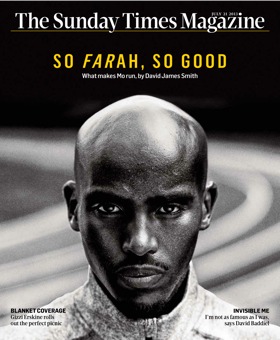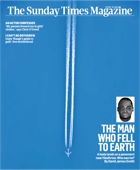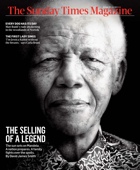Abusing The Truth
October 4, 2010
As a non-fiction writer I have a strong attachment to the truth. The truth is that if you are thinking of becoming a writer you will need skin like armoured rhino hide. For as soon as you start putting words on a screen people will be queuing up to take issue with whatever you write. You will be criticised, your professional abilities called into question. Editors will throw your copy or your mansucripts back at you and tell you, at best, that they need work or at worst that they are hopeless and unpublishable.
That is no time to be wounded or precious, it is the moment to listen, take heed, take stock. They may well be right.
If you get past that stage and finally enter the public domain – blogs are a convenient way of short-circuiting that process, you can publish any old crap on a blog, and people often do, unmediated words, unfiltered by an editorial process – once you are out there, you are really out there and may face all manner of criticism, from professional critics, letter writers, emailers, people you’ve never met, estranged (and strange) members of your own family, people who aren’t brave enough to put their names to what they write and don’t want you to know their identity…all sorts, the whole gamut, they all come crawling out of the woodwork, or scurrying from the damp soil beneath the rock. Some people of course do genuinely want a debate or a discussion, but many are just plain unpleasant or insulting.
My recent book about the formative years of Young Mandela attracted considerable publicity on its release, some of it adverse, especially in South Africa where it was described as scandalous, its author as a muckraker. I was not surprised or hurt, I had anticipated that response and a little controversy is no bad thing after all. You write a book hoping it will be bought and read and thought about and talked about. It is sometimes said, oh he or she is just doing this or that to promote his or her book. Oh dear. How terrible, the very idea that any writer should want to do something that encourages people to buy their book.
People close to Mandela who read my manuscript ahead of publication said, you do realise don’t you that some people in South Africa will hate you for what you are doing. I did realise. I was rendering Mandela human, displacing him from his pedestal. I knew he had not himself asked to be canonised and did not consider himself a saint and even felt uncomfortable at being thought saintly by others. Mandela knew all along he was only human and my book simply explored the evidence of his humanity, flaws, foibles and all. It was honest and true. No-one could accurately say otherwise.
There was a mix of opinions about the book and I embraced them all readily. I liked the debate that the book provoked, posted all the reviews, the many good and the few bad, to this website, quite deliberately, so as not to stifle that debate.
Not long after the book was published I wrote an article for the Sunday Times Magazine about the all too numerous minor incidents of racism my mixed race family had experienced since we left London and moved to Lewes five years ago. Someone asked me the other night if there was a connection between the two, meaning I think had Mandela’s struggle fired my own anti-racist zeal. No. There was a link – the book and the article were both about race and racism, a subject close to my heart, but that was all.
I have been writing for the Magazine for many years but this was by far the most personal article I had ever written. The article described the day to day reality of racism and spoke for many people who had shared similar experiences. I knew I was being provocative in writing the article, I deliberately intended it as a grenade lobbed into the heart of middle England – my family’s little slice of middle England was Lewes but it was the bigger picture I was after, the general truth beyond the specific incidents that were mentioned. In a sense the story was not mine; it was my partner’s story, our four children’s story and I was very careful in ensuring they agreed with the article and felt it accurately reflected their experiences.
It seemed to me that racism is rarely openly addressed and often misunderstood. It is depressing when white people think they know best and want to dictate the terms by which racism can be defined. I wanted the article to ignite, not a row, but a discussion, I hoped it might contribute to some awareness and understanding of what it is like to be black in British society, especially in an area which is overwhelmingly white.
We all knew that not everyone would like the article and we were all prepared for the negative feedback. Someone called it a ‘backlash’ but I must say that was not how I felt about the hostile response. Not a backlash so much as a hysterically defensive reaction full of personal abuse directed towards me. I figured that my critics did not feel they could be openly abusive towards my partner or our children as that would be too obviously racist. I was the author of the article – many people seemed to assume that I had not even consulted my family, or anyone else before writing it – and I had allegedly accused the whole of Lewes of being racist. I was the lead story in the local paper: Outrage At Race Slur On The Town. Even my MP was ‘dismayed’. Apparently he doesn’t know much about racism either.
One of my abusers had written to the dismayed MP calling me a ‘copper bottomed ocean going tosspot’. To that particular blogger-poster-letter-writer I was a pest, to others I was, variously, an insignificant pipsqueak, a money hungry cunt (no asterisks), an ignorant cunt (no asterisks), a complete dick, a twat, old pock face (charming!), an absolute disgrace, a ‘racist hunter’ (I liked that one), shitting on my own doorstep, doing the BNP’s work for them, whining, whingeing, self-promoting, over sensitive, naive and unrealistic, ought to be ashamed of myself, carrying a ‘great big chip’ on my shoulder, deviously pretending to be married when I wasn’t (The Sunday Times has a blind spot about the word ‘partner’ so I called mine my ‘wife’ to avoid having a 49 year old woman become my ‘girlfriend’ in print), ought to fuck off back to Brixton (where I never came from in the first place), ought to fuck off to Pakistan (for some unexplained reason), Murdoch’s lackey, abusing my power as a journalist, disturbed, devious and dangerously manipulative, a sinister enemy of ‘bonfire’ (the practices of the Lewes bonfire societies for those of you who don’t know what ‘bonfire’ means), mistaken in believing the traditions of bonfire night in Lewes have their origins in anti-catholic bigotry, desperate to cry racism, the sensationalist hack author of utter, self-pitying racist drivel, possessed of a victim mentality, a narrow minded little man who sees evil in everything, a prize pillock for putting my wife and children on ‘the front page’, an obnoxious, misguided oaf, an absolute twerp, a silly man writing paranoid nonsense, masquerading on the Lewes forum as anyone who dared to say anything in support of my article (I wasn’t), the author of an appalling article lacking in evidence to support its case (an odd criticism as the article was a personal account of my family’s experiences of racism – the evidence was in the recounting of the experiences themselves), bound to be the subject of an effigy-burning on bonfire night (putting me in good company with the ‘pikey’ women and children at the window of the caravan effigy burned by Firle Bonfire Society and with Patricia Knight the local woman who protested about Firle’s effigy burning, who was herself burnt as an effigy the following year. Alongside them, I will wear that badge of honour with pride…)
Like I said, you better be thick skinned in this job, especially if you are going to challenge racist ideas and behaviour…and also have the courage to stand up for your own opinions, or those of your family. Otherwise you’re in danger of looking like a coward, like those who hide behind abusive commentary, anonymous emails and silly names on web forums.
Thank god, there was, here and there some constructive criticism you could at least think about or challenge. Not much, perhaps, but even so. I had written honestly, spoken a truth that my detractors seemed unable to hear. It was easier for them to attack the article, or its author, or claim I was denigrating an entire town. I wasn’t. I was only talking about specific events and experiences. It was the local paper I think who used the phrase ‘hotbed of racism’ – it was not an idea articulated or even hinted at in my original article. Frankly, as many others have noticed, much of the negative response to the article was racist itself.
How poignant then that my inbox should have swelled with many emails and messages of support from strangers, and some old friends and acquaintances, who had read the article and were moved to write because it had spoken for them or to them. Some had cried, some had been reminded of painful racist experiences in their own past, some were still struggling as adults, because that is what racism can do. It is pernicious, cruel, and even the little things add up over time. Don’t tell me it is just ignorance, how much ignorance are black people supposed to put up with? Don’t tell me it happens the world over, how is that any solace to my daughter when she is called nigger in the playground? ‘Don’t worry, love, lots of other towns and countries harbour racists, too’. ‘Thanks, dad, that is a great comfort’. Don’t tell me some black people brush it off or don’t notice it or ignore it when it happens to them and why can’t all others do the same. Who are you – white or black – to tell my family or anyone else how to handle racism? Laugh, mock, snipe, insult, deny, denigrate, dismiss…do all that…do it as much as you can…it won’t make racism go away, it won’t break the cycle of ignorance, it won’t change the disproportionate under achievement of black boys in schools, or their over representation in the criminal justice system or in mental health care. None of that matters, though. Nothing matters. Just so long as a liberal ideal is defended. No problem here.
Next week…the everyday stories of small town racism that never made it into my original article…





